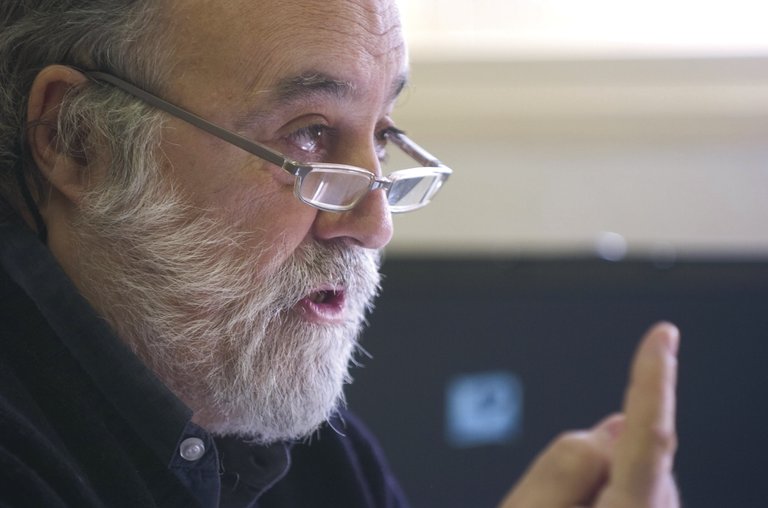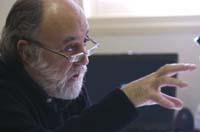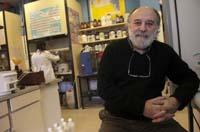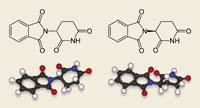"Without an appropriate scientific and technological base, a country cannot compete effectively"

It is an honor and I felt a lot of joy. It is the result of an individual and team work, carried out by researchers who for many years have worked and work on the equipment they previewed. All these researchers have contributed to the development of organic chemistry in the Basque Country, placing it at the most prestigious levels. It is a stimulus to continue investigating, both for all researchers who are part of the research team and for those who in the future can join it.
I think it's a combination of both aspects. In other words, in general, the awards give a prize to work done previously, in this case of research on organic chemistry, but at the same time give strength and strength to continue with that work.
Great work. Research, like other knowledge activities, requires a continuous effort. The greatest reward of this effort is that the results of our own research have a great impact and that scientists value well. The prizes are, in part, the fruit of that constant effort of each of the researchers cited in his field. All together we have worked a lot in the faculty. We work especially in the field of organic chemistry.

According to the textbooks, organic chemistry is the chemistry of carbon and its compounds. The basic components of life are, to a large extent, organic molecules: lipids, carbohydrates, proteins and nucleic acids. Organic chemistry is attractive above all because it explains how these compounds are formed in nature. In addition, nature allows to develop tools to build molecules with more appropriate characteristics that cannot be created with their own resources. Organic chemistry, in addition to observing the processes that take place in nature, can transform them and generate new processes and products. All this is very attractive. What's more, that's one of the things that differs from the rest of the basic sciences. If we look at the environment, we can observe that we owe chemistry a fundamental part of well-being.
Yes, my father, Antonio Luis, studied organic chemistry and three of his five brothers. All of them were founders of companies in the pharmaceutical sector and, in particular, founders of a Catalan company, together with others. Biochemie, a leading company in the production of beta-lactam antibiotics. Today, fortunately or unfortunately, it is part of the Novartis group. Surely that family situation led me to study Chemistry.
It is something to be done and they are doing, and well. Education, science, and technology should be the basis of all countries. Without these three milestones it is not possible to compete. That is, you cannot compete in a globalized world in constant growth. The construction of new emerging CIC in biosciences and nanotechnologies is cementing the progress of the ACBC. Perhaps it is my concern that the aid is destined mainly to this sector, forgetting the universities, in our case the UPV.
Undoubtedly, we must make a special effort in this field, but without losing sight of the university. The University is a knowledge generating institution. In addition, it is a training center for future professionals and researchers that every country needs. For this, adequate funding is necessary and, as is known, in general, the first institutions that suffer budget cuts are public research institutions. In any case, I hope that the Basque Government and the UPV will continue to subsidize research groups.

The number of students may decline due to the current crisis, lack of motivation, constant changes in education, etc. The truth is that it is not easy to foresee the future. As I mentioned above, it is very important to train young researchers. They will be the ones that will replace the current researchers. I insist on this: without an appropriate scientific and technological base, a country cannot compete effectively. It is essential to promote scientific and technological studies (without forgetting the humanities). In addition, special attention should be paid to groups of researchers.
Unfortunately, chemistry has not always had the fame it should have. In fact, in the last two decades, the idea has been imposed, among other things, that chemistry is responsible for environmental pollution. In addition, during these years some small and medium enterprises have sunk, especially because they could not compete with the markets of China and India. On the contrary, chemistry is a creative science essential to increase the production of a country and improve the quality of life of its inhabitants.

Buletina
Bidali zure helbide elektronikoa eta jaso asteroko buletina zure sarrera-ontzian








